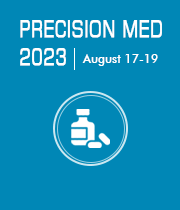Title: Pharmacogenomics: current status and future directions
Abstract:
The goal of personalized medicine is to provide individualized treatment and to predict the clinical outcome of different treatments in different patients. Pharmacogenomics (PGx) is one of the core elements in personalized medicine. The basic concept is that interindividual variability in drug response is a consequence of multiple factors, including genomics, epigenomics, the environment and patient characteristics, such as gender, age and/or concomitant medication. PGx research has led to fundamental discoveries in the last decade, and a large resource of PGx traits has been generated in which variation in the gene sequence and/or variation in the expression of genes involved in the metabolism, transport and other targets are associated with alterations in drug response. Clinical important cancer drugs related to PGx information are thiopurines, 5-fluorouracil, tamoxifen, irinotecan etc. Very recent efforts deal particularly with the implementation of PGx into clinical practice based on existing guideline recommendations such as CPIC or DPWG. A new generation of technologies commonly named -Omics permits assessment of the entirety of the components of biological systems and produces an explosion of data and a major shift in our concepts of disease. These technologies will likely shape the future of health care. One aspect of these advances is that the data generated documents the uniqueness of each human being with regard to disease risk and treatment response. These developments have reemphasized the concept of personalized medicine.


